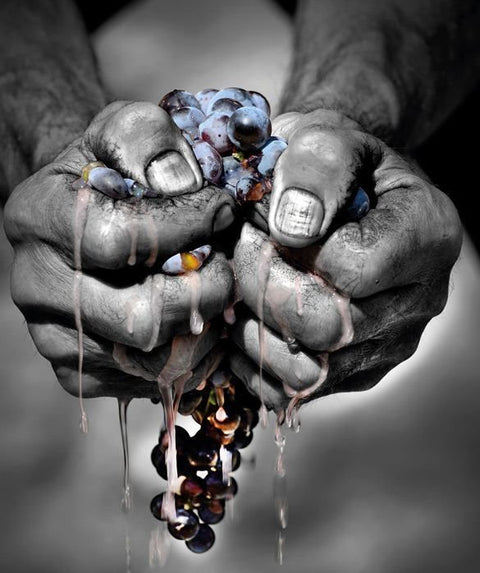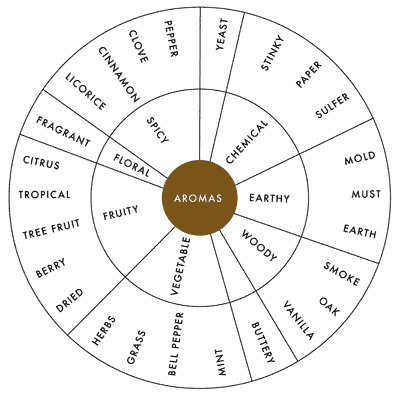McLaren Vale Wine Map: The Complete Guide to Sub-Regions
Quick Take: McLaren Vale's 7,438 hectares hide five distinct sub-regions, each producing dramatically different wine styles thanks to ancient soils, elevation changes, and proximity to the ocean.
McLaren Vale isn't just one wine region—it's a patchwork of microclimates and soil types that create dramatically different wine personalities. Understanding these sub-regions is your key to finding wines that match your taste perfectly.
The McLaren Vale Sub-Region Breakdown
Blewitt Springs - The Elevated Elegance
Location: Eastern hills, highest elevation (200-300m) Soil: Sandy soils over clay with ironstone Climate: Coolest sub-region, significant diurnal variation
Wine Character:
- Shiraz: Elegant, spicy, red-fruited rather than jammy
- Grenache: Bright acidity, floral lift, exceptional aging potential
- Signature trait: Mineral backbone with vibrant acidity
What to Expect in Your Glass:
- Red cherry and raspberry over blackberry
- Distinct spice and pepper notes
- Higher natural acidity for food pairing
- More restrained alcohol levels
Best Producers to Try: Yangarra Estate, Bondar, Hickinbotham
Willunga Basin - The Historic Heart
Location: Central-eastern McLaren Vale Soil: Ancient creek bed with deep alluvial soils Climate: Protected from strong winds, moderate temperatures
Wine Character:
- Shiraz: Rich but balanced, chocolate and dark fruit
- Cabernet Sauvignon: Structured, age-worthy expressions
- Signature trait: Depth and concentration with elegant tannins
What to Expect in Your Glass:
- Dark chocolate and blackberry flavours
- Firm but silky tannin structure
- Complex spice layers (cinnamon, clove)
- Excellent aging potential (10+ years)
Best Producers to Try: d'Arenberg, Wirra Wirra, Curtis Winery
Seaview - The Coastal Influence
Location: Western edge, closest to Gulf St Vincent Soil: Sandy loam over limestone Climate: Maritime influence, consistent ocean breezes
Wine Character:
- Shiraz: Fresh, medium-bodied, savoury edge
- Chardonnay: Mineral-driven, citrus-focused
- Signature trait: Natural acidity from coastal cooling
What to Expect in Your Glass:
- Bright fruit with savoury undertones
- Sea salt minerality (especially whites)
- Medium body with excellent freshness
- Food-friendly styles
Best Producers to Try: Tatachilla, Penny's Hill, Serafino
Clarendon - The Intensity Zone
Location: Southeastern foothills Soil: Ancient soils with high iron content Climate: Warm, protected from ocean influence
Wine Character:
- Shiraz: Full-bodied, intense, age-worthy
- Grenache: Powerful yet refined from old vines
- Signature trait: Concentration and depth
What to Expect in Your Glass:
- Dense, dark fruit flavours
- Rich texture and full body
- Complex earth and mineral notes
- Built for long-term cellaring
Best Producers to Try: Clarendon Hills, Kangarilla Road, Gemtree
McLaren Flat - The Valley Floor
Location: Central valley, lowest elevation Soil: Rich alluvial soils, deep and fertile Climate: Warmest sub-region, heat accumulation
Wine Character:
- Shiraz: Ripe, fruit-forward, approachable young
- Grenache: Generous, soft tannins
- Signature trait: Immediate appeal and accessibility
What to Expect in Your Glass:
- Ripe berry and plum flavors
- Soft, approachable tannins
- Fuller body and richness
- Ready to drink upon release
Best Producers to Try: Hardy's, Rosemount, Serafino
How Soil Shapes Your Wine Experience
Ironstone Country (Blewitt Springs)
The rusty red ironstone creates wines with structure and spice. Think of it as nature's seasoning rack—adding complexity and savoury elements to fruit flavours.
Sand Over Clay (Seaview/Coastal Areas)
This combination provides excellent drainage while retaining moisture. Results in wines with bright acidity and mineral freshness—perfect for seafood pairing.
Ancient Creek Beds (Willunga Basin)
Deep, fertile soils that have been deposited over millennia. Creates wines with layers of flavour and exceptional aging potential.
Limestone Influence (Various Pockets)
Adds natural acidity and mineral complexity. Often creates wines with exceptional food-pairing versatility.
Climate Secrets: Why Location Matters
Ocean Influence Gradient:
- West (Seaview): Daily sea breezes, consistent temperatures
- Center: Moderate influence, balanced conditions
- East (Blewitt Springs): Elevation cooling, dramatic day/night swings
Elevation Effects: Every 100 meters of elevation drops the temperature by approximately 0.6°C, creating naturally higher acidity and more elegant wine styles.
Wind Patterns:
- Morning sea breezes cool the western vineyards
- Afternoon gully winds from the Adelaide Hills affect eastern sites
- Protected valley floors accumulate heat for riper styles
Matching Sub-Regions to Your Taste
If You Love Elegant, Food-Friendly Wines:
Choose: Blewitt Springs or Seaview Why: Higher acidity, more restrained fruit, savoury complexity
If You Prefer Rich, Powerful Wines:
Choose: Clarendon or McLaren Flat Why: Fuller body, riper fruit, immediate appeal
If You Want the Best of Both Worlds:
Choose: Willunga Basin Why: Balance of power and elegance, excellent aging potential
If You're New to McLaren Vale:
Start with: Central McLaren Vale blends Why: Represent the region's signature style without extremes
Reading the Signs: What Labels Tell You
"Blewitt Springs" on the label: Expect elegance and spice "Single Vineyard" designation: Focus on specific terroir expression "Estate Grown" claims: Fruit sourced from winery's own vineyards Sub-region listed: Producer highlighting specific terroir characteristics
Pro Tips for Exploring McLaren Vale Sub-Regions
- Start with one sub-region and taste multiple producers to understand the terroir
- Compare the same variety (like Shiraz) across different sub-regions
- Pay attention to vintage variation - climate affects each area differently
- Consider food pairing context when choosing sub-regional styles
- Build a mixed case representing different sub-regions for comparison
The Bottom Line: McLaren Vale's sub-regions offer a complete spectrum of wine styles within 30 minutes of driving. Understanding these differences transforms you from a casual taster into an informed wine lover who can predict what's in the glass before the first sip.
Ready to explore McLaren Vale's diverse terroir?




Comments (0)
There are no comments for this article. Be the first one to leave a message!